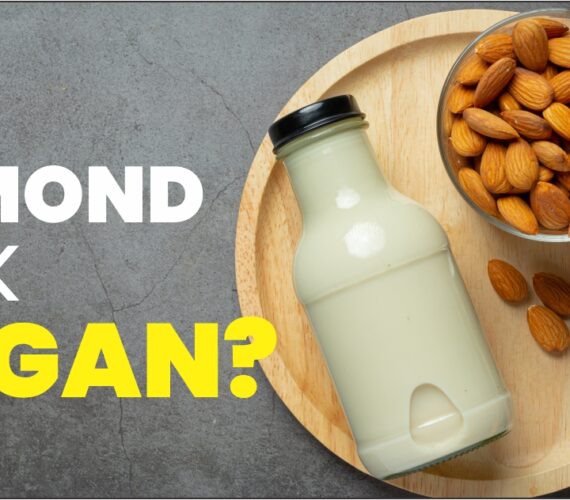Introduction
A plant-based diet, also known as a vegan or vegetarian diet, is gaining popularity worldwide. It involves consuming mainly plant-derived foods and eliminating or reducing the consumption of animal products like meat, dairy, and eggs. The shift towards plant-based diets is not only driven by health considerations but also by growing awareness of the environmental impacts of animal-based diets.
Environmental Impact of Animal-Based Diets
Animal agriculture has significant environmental consequences. One of the major concerns is greenhouse gas emissions. Livestock farming releases substantial amounts of methane and nitrous oxide, which are potent greenhouse gases contributing to climate change. Additionally, large-scale livestock farming requires vast amounts of land and water, leading to deforestation, habitat loss, and water scarcity.
Environmental Benefits of a Plant-Based Diet
Adopting a plant-based diet can play a crucial role in mitigating environmental issues. By reducing or eliminating animal product consumption, we can significantly decrease greenhouse gas emissions and the demand for land and water resources. This, in turn, helps preserve forests, biodiversity, and delicate ecosystems.
Promoting Sustainable Agriculture
Transitioning to plant-based diets promotes sustainable agricultural practices. Organic farming methods, for example, prioritize soil health and biodiversity while avoiding harmful pesticides and fertilizers. Crop rotation helps maintain soil fertility and reduces the risk of crop diseases, resulting in more resilient and sustainable food production systems.
Reducing Food Waste
Food waste is a big problem all over the world, and it also hurts the earth. Plant-based diets teach people to eat more mindfully and can help cut down on food waste. People are less likely to eat too much food and waste it if they focus on fruits, veggies, grains, and legumes.
Health Benefits of a Plant-Based Diet
A plant-based diet is good for the earth, but it is also good for your health in many ways. Studies have shown that these diets can improve the health of your heart, help you control your weight, and lower your chance of long-term diseases like type 2 diabetes and some cancers.
Ethical Considerations
In addition to helping the planet, plant-based diets are good for your health. Such diets have been demonstrated to promote cardiovascular health, aid in weight control, and reduce the risk of chronic diseases like type 2 diabetes and several forms of cancer.
Accessible and Affordable Plant-Based Diets
Contrary to common misconceptions, plant-based diets can be accessible and affordable. With a variety of plant-based food options available, individuals can find budget-friendly alternatives to animal products without compromising on taste or nutrition.
Tips for Transitioning to a Plant-Based Diet
Transitioning to a plant-based diet can be done gradually. Incorporating small changes, exploring delicious plant-based recipes, and discovering various plant-based protein sources are excellent ways to ease into this lifestyle.
Plant-Based Diets and Global Food Security
As the global population continues to grow, sustainable food production becomes increasingly crucial. Plant-based diets can help address food security challenges by utilizing resources more efficiently and producing more food with less environmental impact.
Environmental Benefits Beyond Diet
Choosing a plant-based diet is just one aspect of a sustainable lifestyle. Reducing plastic use, minimizing waste, and opting for eco-friendly products also contribute to a healthier planet.
Addressing Common Concerns About Plant-Based Diets
Nutritional adequacy is a common concern for those considering a plant-based diet. However, with careful planning and attention to nutrient intake, plant-based diets can provide all essential nutrients, including protein, vitamins, and minerals.
Read Also :- Top 15 misconception about vegan food
Advocating for Change
Individuals can make a difference by committing to a plant-based lifestyle and supporting sustainable brands and initiatives. By encouraging positive changes in food systems, everyone can contribute to a healthier planet.
Conclusion
Embracing the environmental advantages of a plant-based diet is not only beneficial for personal health but also crucial for the planet. By making conscious choices about our diet and lifestyle, we can contribute to a sustainable and environmentally friendly future.
FAQs
1. Is a plant-based diet suitable for people of all ages?
Yes, a well-planned plant-based diet can be suitable and nutritious for people of all ages, including children and seniors.
2. Can a plant-based diet meet protein requirements for athletes and active individuals?
Yes, plant-based diets can meet protein requirements through sources like legumes, tofu, tempeh, and plant-based protein powders.
3. Will I lose weight on a plant-based diet?
Many people experience weight loss on a plant-based diet due to its focus on whole, nutrient-dense foods and reduced consumption of high-calorie animal products.
4. What are some eco-friendly alternatives to animal-based products?
There are many eco-friendly alternatives, such as plant-based meat substitutes, dairy-free milk, and vegan leather made from sustainable materials.
5. How can I encourage others to adopt a plant-based diet?
Lead by example and share your positive experiences with a plant-based diet. Offer delicious plant-based meals to friends and family and discuss the environmental benefits with them.








